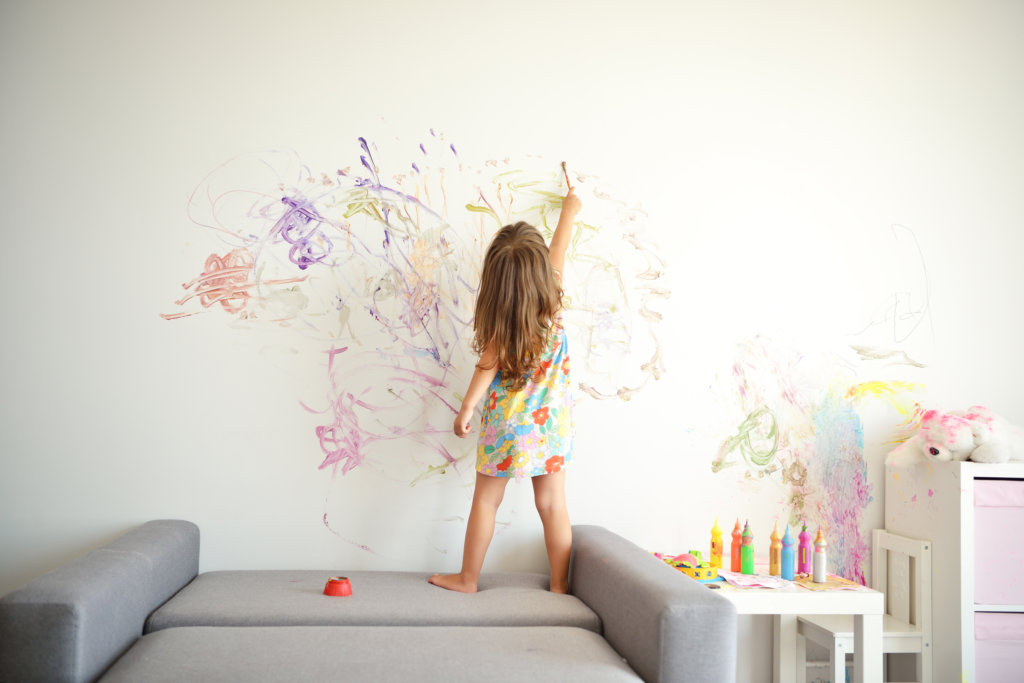As a parent do you feel you have tried everything you know to do and still have daily struggles with your preschooler’s behavior? Your family may have tried time outs, spankings, removing privileges, etc. Every family’s parenting philosophy is a little different, but below are some general tips on how to improve your preschooler’s behavior.
Tip 1: Remain calm. Easier said than done of course, but children model the behavior you demonstrate and often express the same “energy” you reflect. How many times have you in your adult life been around someone who was irritated and found yourself getting upset? This happens on the parent-child level too. If your go to strategy is to yell at your child in order to get them to follow through with your instructions, you can expect yelling to become a common way your child expresses their frustration. By remaining calm you are providing a safe place for your child to open up to you about what is going on. Quick tip: Check your heart rate. If yours is elevated, it might not be the time to have ‘a talk’.
Tip 2: Identify and validate your child’s emotions. Identifying and validating your child’s emotions is so important! Preschoolers are learning so much about their world each day and building their vocabulary. Introducing emotional language to children when they are young helps them identify what they are feeling in the future. It also helps them be able to communicate that to others more effectively. Validating emotions is the process of learning about, understanding, and expressing acceptance of your child’s emotional experience. You may wonder, why would this work or why does it matter? Identify and validating emotions tells your child that you hear them and you understand. Even if you don’t totally understand their emotions or they don’t pick the “right” emotion word, you are making an effort to connect with your child. Also, you are teaching your child that it is ok to have a broad range of feelings!
Tip 3: Have clear rules or expectations for your child. Parents want their children to behave and grow up to be kind, responsible individuals. However, children don’t automatically come programmed to know how to do this. A child has to be taught how to behave. I don’t mean using heavy control, rather, use gentle guidance as you explain the expectations you have for them. Using simple, clear statements. Develop a set of 3 to 5 basic family rules. Think of rules you might see posted at your child’s preschool or daycare. Rules such as use respectful language, use gentle hands and feet, tell the truth, etc. may be good staring place, but make the guidelines fit your family! Also frame these rules in a positive way. Saying “use kind hand” vs. “don’t hit” is better because we don’t want to give children ideas of how to misbehave. Once you have these rules it is important that parent enforce them. If not, don’t be surprised if your child ignores what you are asking them to do. This is a process, and you should expect some level of push back at first, but one that will pay off in the long run!
Tip 4: Let children have some choice. Power struggles or control issues can be a big issue for preschoolers and let’s be honest children in general. So much of a child’s life is out of their control – what the family decides to do that day, when they go to preschool, what they are having for dinner, etc. Giving a child some age appropriate choices such as what books they would like to read, what toys they want to play with, what shirt they want to wear, etc. can help provide children with a sense of control. Ultimately parents need to be the ones in charge at home, but giving children choices helps them practice decision making and self responsibly skills.
Tip 5: Have fun and play with your child! Parents are busy, we get it! However, making room in your schedule to spend one on one time with your child is so important! You would be surprised how many behavioral problems will decrease is if you are willing to engage in child directed play. Child directed play simply means you are following their lead in the play. If they want to act silly and play with stuffed animals join in. If they want to snuggle and read a book, do that. Make sure during this time you are connecting with your child, technology free. Often times children misbehave to get attention. If the only way a child can get your attention is to cry and pitch a fit then they will do that. To a child, negative attention is better than no attention. Remembering to give positive attention to your child each day will help strengthen the parent-child bond and create less resistance at home.
I hope these have been helpful tips for our preschool families! Many of the tips are applicable as your child grows. If you find yourself needing more help, feel free to reach out to Dandelion Family Counseling. Our therapists are willing and ready to help support you and your child!

